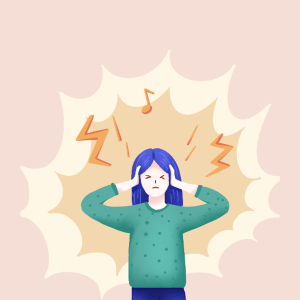
Thursday Sep 14, 2023
Cognitive Dissonance: Understanding the Noise in our Minds
Chapter 1:Summary of Noise
In "Noise," Daniel Kahneman explores the concept of noise, which refers to the variability in judgments made by different individuals or even the same person at different times. He argues that noise is often disregarded in discussions about decision-making, as attention is mostly focused on bias and systematic errors.
Kahneman begins by explaining the detrimental impact of noise on judgment. He discusses the findings of various studies that reveal significant inconsistencies in decision-making, even among experts in fields such as medicine, law, and finance. The presence of noise, he argues, can lead to unjust outcomes, reduced productivity, and decreased customer satisfaction.
The author then delves into the causes and sources of noise. He discusses how intuitive judgments and cognitive biases, as well as external factors such as weather or monetary incentives, can contribute to noise in decision-making.
Kahneman goes on to discuss the consequences of noise in different domains. He examines the implications of noise in hiring decisions, criminal justice, child protection services, and other areas where judgments are critical. He provides numerous real-life examples to illustrate the negative effects of noise and the urgent need to address it.
Towards the end of the book, Kahneman explores potential remedies for noise. He suggests developing decision aids, calibrating judges, using algorithms, and embracing transparency in decision-making processes. He also emphasizes the importance of acknowledging and measuring noise as a first step towards combating its negative consequences.
In conclusion, "Noise" by Daniel Kahneman sheds light on the overlooked aspect of decision-making: noise. Through compelling examples and thorough research, Kahneman highlights the urgent need to address and reduce noise in various domains to improve outcomes and increase fairness.
Chapter 2:The Meaning of of Noise
The book "Noise" by Daniel Kahneman, Olivier Sibony, and Cass R. Sunstein explores the concept of noise or variability in decision-making processes. It delves into the idea that even when people have access to the same data and operate within the same system, their decisions can still be inconsistent and unpredictable. The authors argue that noise, which refers to judgments that are different from one another despite identical circumstances, can have significant consequences in organizations and society at large.
"Noise" aims to shed light on the causes and consequences of noise and presents strategies to mitigate it. The authors discuss how noise arises from factors such as personal idiosyncrasies, biases, and random influences, all of which can lead to inconsistent outcomes. They examine the impacts of noise on various aspects of life, including legal decisions, medical diagnoses, hiring processes, and financial forecasting.
The book suggests that reducing noise is crucial for improving decision-making accuracy, fairness, and efficiency. It explores various methods and tools that organizations and individuals can employ to minimize noise, such as structured approaches, algorithms, and data analysis. By highlighting the problem of noise and offering practical solutions, "Noise" aims to assist readers in making better and more consistent decisions in their personal and professional lives.
Chapter 3: Quotes of Noise
- "Noise is the enemy of good decision making."
- "Noise is present in all aspects of life and can obscure the truth."
- "Noise leads to inconsistency in judgment and decreases the quality of decisions."
- "Reducing noise can significantly improve decision making in various domains."
- "Noise can be caused by individual biases, random factors, or systemic errors."
- "Recognizing and understanding the presence of noise is the first step towards combating it."
- "The negative impact of noise on decision making is often overlooked but can have significant consequences."
- "Addressing noise requires systematic changes and a commitment to improve decision-making processes."
- "Noise can affect professionals in various fields, including medicine, law, and finance."
- "Eliminating noise should be a priority for organizations and individuals striving for better decision making."
No comments yet. Be the first to say something!